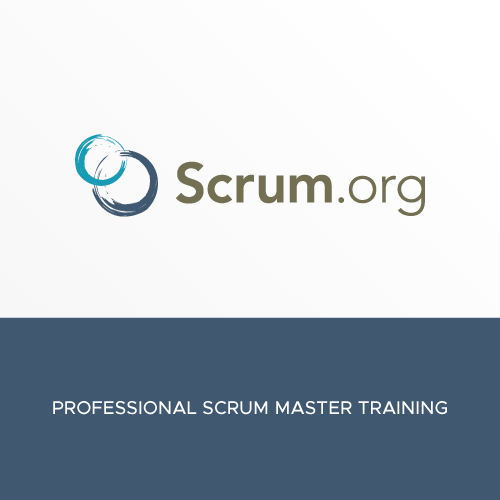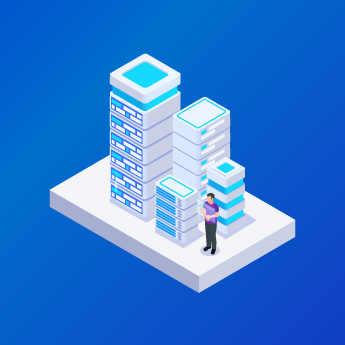PROFESSIONAL SCRUM MASTER TRAINING
Professional Scrum MasterTM (PSM) is a 2-day course that covers the principles and (empirical) process theory underpinning the Scrum framework, and the role of the Scrum Master in it.This course is a combination of instruction and team-based exercises, and teaches what is at the heart of the Scrum and Agile movement.
Objectives
- Scrum history and the importance of the 5 Scrum Values: Commitment, Focus, Openness, Courage, & Respect.
- The Agile Manifesto, and the difference between Agile and Scrum.
- What environments and projects are best suited for Scrum.
- Empiricism and how it works to control a project.
- The Scrum framework – how does it work?
- Scrum roles and responsibilities – who does what and why?
- Servant leadership and self-organization.
- Scrum meetings and “other” Agile meetings and practices to help ensure success with Scrum.
- Vision statements, Road mapping, and Release Planning.
- Requirements vs. User Stories and the Product Backlog.
- Sizing Product Backlog Items and preparing them for a Sprint.
- Sprints vs. Iterations, Product Backlog vs. Sprint Backlogs, official Scrum meetings vs. “other” meetings.
- Benefits of Burn-down charts and Burn-up charts, and how they are created and used.
- Best practices with User Stories, offshore, and implementation.
- Identifying potential trouble and how to be prepared.
Outline
Module 1: Introduction to Lean, Agile, and Scrum
- What is Agile?
- The Origin of Agile
- The Agile Manifesto
- The Values of Agile
- Scrum Overview
- The History of Scrum
- The Differences between Agile and Scrum
- Agile Project Testing Principles
- The Focus of Lean
- The Origins of Lean
- Lean in a Nutshell
- The Lean Temple
- The Lean Principles
- Lean vs Agile
Module 2: Overview of Scrum
- Key Features of Agile
- Key Features of Scrum
- Sprints
- The Deming Cycle
- Attributes of Scrum
- Key Activities
- Quality and its Importance
- A Kaizen Mindset
- Incorporating Kaizen
Module 3: Scrum Artefacts
- Product Backlog
- Resource Requirements
- User Stories
- INVEST
- Burndown Charts and Scrum Boards
Module 4: Sprints and the Scrum Framework
- Sprints
- Sprint Planning
- What is MoSCoW
- The MoSCoW Rules
- Managing the Sprint Backlog
- Tracking Progress
- The Sprint Review
- Sprint Retrospective
- Cancelling a Sprint
Module 5: Roles and Responsibilities
- Roles and Responsibilities in Scrum
- Product Owner
- The Development Team
Module 6: The Scrum Master
- Scrum Master Overview
- Scrum Master and the Product Owner
- Scrum Master and the Development Team
- Scrum Master and the Organisation
Module 7: Facilitation, Coaching, and Servant Leadership
- Servant Leadership
- Servant Leadership and the Scrum Master
- Developing Cohesiveness
- Group Loyalty and Trust
- Group Communication
- Belbin Types and Roles
- Team Development
- Tackling the Learning Dip
- Handling Difficult People and Situations
- Managing Conflict and Moving Forward
- Dealing with Someone Else’s Emotions
- Presenting Clear Messages
- Written Communication
- Active Listening Skills
- Motivation
- The Humanistic Approach
- Maslow’s Hierarchy of Needs
Module 8: Collaborate Decision Making
- Decision-Making Theories
- The Decision-Making Process
- Tools and Techniques
- Group Problem Solving and Decision Making
- Questioning Techniques
- Inclusive Decision Making (Weighting, Criteria, Pugh Matrix)
- Priority Tasks
Module 9: Scaling and Adaptation
- Scaling for Projects
- Dealing with Change
- Dealing with Risk
- Monitoring a Project
- Choosing the Right Metrics
- Process Measurement Points
- Criteria for Good Measures
- Value Streams
- Building a VSM
- Scaled Scrum and Practices
- Descaling
- Scrumble
Audience
- IT Professionals (Architects, BAs, DBAs, Developers, Testers, etc.)
- IT Leadership (Managers/Directors/VPs/CIOs/CTOs)
- Project Managers
- Anyone interested in learning the benefits of Scrum
Duration
2 Days





